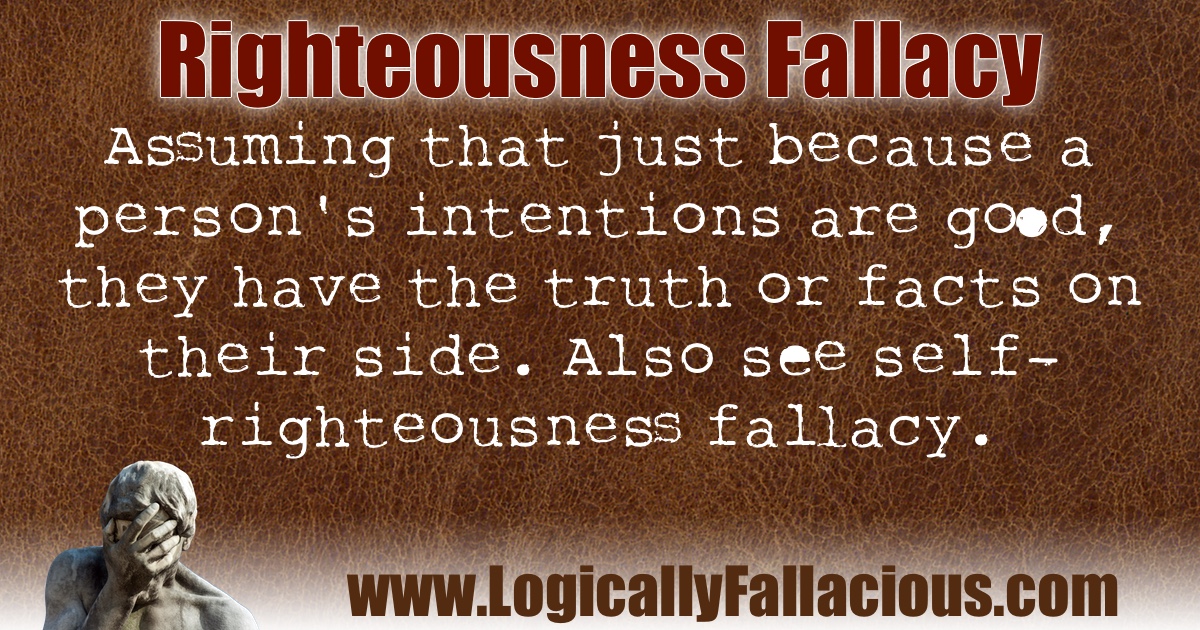Description: Assuming that just because a person's intentions are good, they have the truth or facts on their side. Also see self-righteousness fallacy.
Logical Form:
Person 1 made claim X.
Person 1 has good intentions.
Therefore, X is true.
Example #1:
Ricki: Do you think aborted fetuses have feelings?
Jenni: I follow the lead of my grandmother who is the most honorable and kind person I know. She says they do have feelings.
Explanation: Jenni's grandmother might be the queen of honor with kindness oozing from her orthopedic shoes, but these qualities are independent of one's ability to know facts or come to an accurate conclusion based on available data.
Example #2:
The president wants to bomb that country because he thinks they are preparing to launch a nuclear attack against us. I know the president wants to do the right thing for the good of the American people, so if he says there have nukes, they have nukes!
Explanation: The good intentions of the president are separate from the president's ability to get solid intelligence on foreign affairs. If we are convinced of the president's good intentions, the best we can do is claim that we believe that the president believes he is doing the right thing.
Exception: This relates to facts, not subjective truth. We can use the idea of righteousness to conclude how we feel about a person.
Fun Fact: This is related to the cognitive bias, the halo effect.

References:
This is an original logical fallacy named by the author.
Questions about this fallacy? Ask our community!